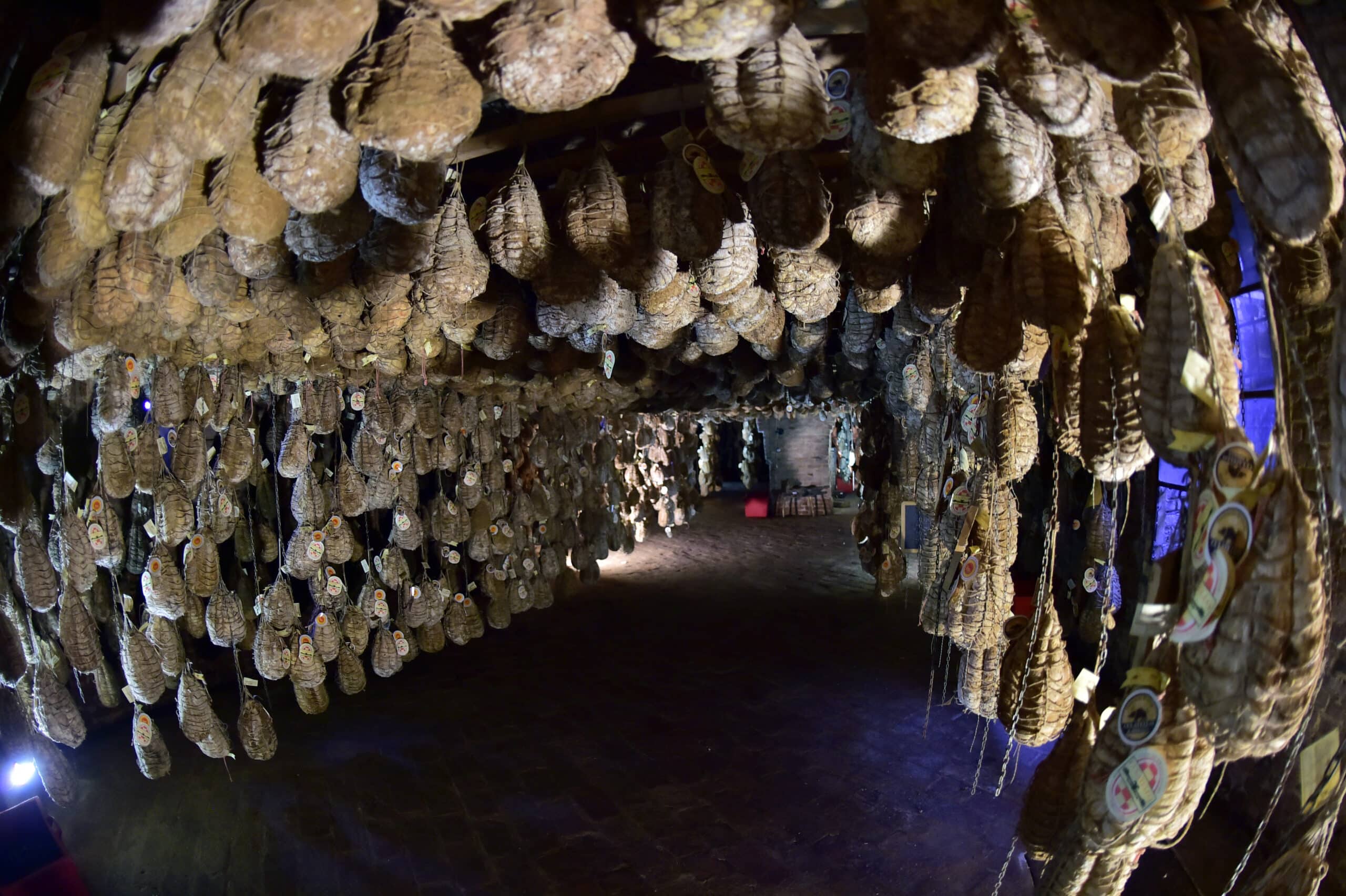Protect the prosciutto: Italy battles swine fever

Italian dry ham Culatelli di Zibello (prosciutto crudo) are hanged in the cellar of the “Antica Corte Pallavicina” in Polesine Parmense near Parma on March 17, 2015. FILE PHOTO/Agence France-Presse
ROME, Italy — Pig farmer Alberto Cavagnini has slaughtered 1,600 of his hogs due to swine fever, a virus threatening the 20-billion-euro pork industry in Italy, including its world-famous prosciutto.
The disease, which is fatal for pigs and disastrous for the economy, has particularly affected the northern regions of Lombardy, Piedmont and Liguria — and its spread is spooking neighbor France.
Italy recorded cases of the virus in just under 25,000 pigs in 50 farms, and in nearly 2,500 wild boars, between January 2022 and September this year, official figures show.
READ: Prosecco, ‘prosciutto’ and spring water–Italian treats that sate and ‘heal’
Cavagnini is lucky: the breeder from Brescia in northern Italy owns several farms, softening the blow from the cull, “but many breeders only have one farm”, so lose all their livestock, he told AFP.
In 2024 alone, between 50,000 and 60,000 pigs were slaughtered across Italy.
EU experts criticized Rome’s management of the crisis after a visit to the Mediterranean country in July.
“The overall disease control strategy in northern Italy needs to be improved. Each region carries out its own measures, with minimum coordination with its neighbors,” they said in a report.
READ: How Italian restaurants are trying to survive the pandemic
Brussels recommended adopting a single strategy for the whole of northern Italy and Prime Minister Giorgia Meloni’s government appointed a special commissioner to lay down the rules.
The movement of pigs within infected and neighboring areas is banned — except towards slaughterhouses — while access to farms is limited to the bare minimum.
“At the moment… we are building barriers” to create zones to limit the movement of wild boars, Francesco Feliziani from the National Reference Centre for Swine Fever (CEREP) told AFP.
‘Very worried’
France has been on high alert in areas that border northern Italy — particularly in the Hautes-Alpes, Alpes de Haute-Provence and Alpes-Maritimes — since January 2022.
And in June, an Italian-French technical group was set up to strengthen “cross-border cooperation for more effective management” of what is “a major threat”, according to the French government.
Those working in the Italian pork sector, which generates an annual turnover of 20 billion euros ($22 billion) and employs 100,000 people, are “very worried”, Ettore Prandini, head of Italy’s biggest agricultural association Coldiretti, told AFP.
Italian farms have around 10 million pigs and income losses are estimated at around 25 million euros, farmer Cavagnini said.
Affected farmers will receive compensation from the state, which arrives on average two years later.
But the virus also affects hundreds of breeders, who cannot transport pigs between farms, suffering losses worth “hundreds of millions” of euros which are not covered, Cavagnini said.
Commissioner Giovanni Filippini said Thursday the government had “adopted all measures to prevent the transmission of the virus” and there “have not been any new outbreaks in recent days”.
But Prandini from Coldiretti said farmers should be receiving greater financial assistance — such as a moratorium on loan repayments — and warned the virus may be curtailed, but not gone.
“If we do not manage to completely eradicate the presence of wild boars in these areas, the risk is that… the crisis passes but then returns,” he said.